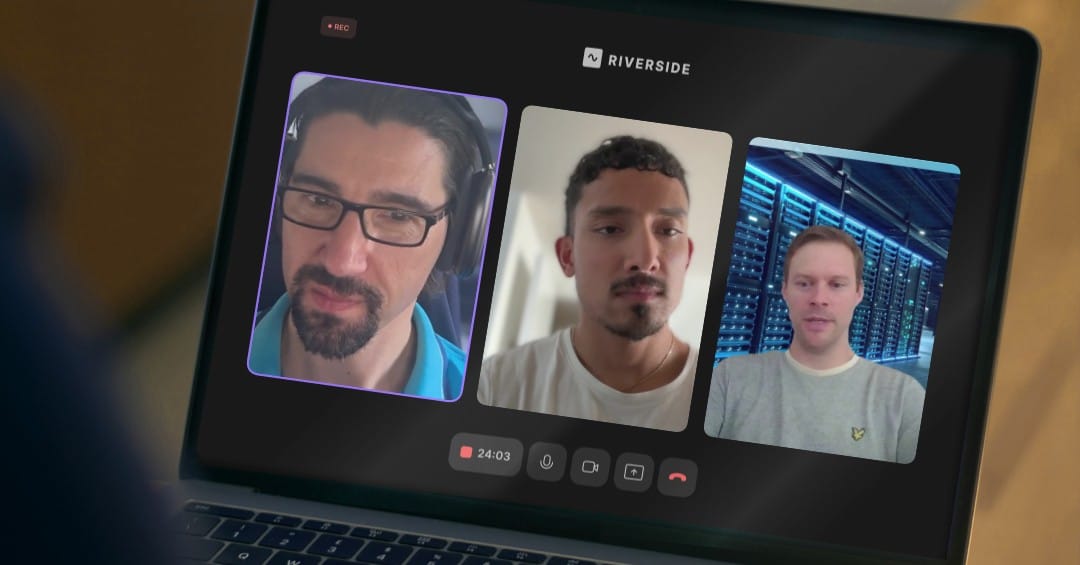
Proudly sponsored by ConstructAI, brought to you by Weston Analytics.
Hello Project AI enthusiasts,
Welcome back to another edition of Project Flux, where we cut through the noise to bring you the AI insights that truly matter for project delivery professionals.
This week has been nothing short of extraordinary. We've witnessed a major consulting firm forced to issue a substantial refund after an AI implementation went spectacularly wrong, a cautionary tale that should make every project manager sit up and take notice. Meanwhile, OpenAI has thrown open the doors to agent development with their new AgentKit, potentially democratising access to autonomous AI in ways we've only imagined. From government regulation frameworks to disturbing cases of AI misuse, the landscape is shifting beneath our feet.
The message is clear: we're no longer in the realm of theoretical possibilities. AI is here, it's powerful, and it demands our full attention—not just to harness its potential, but to manage its very real risks.
In this edition, we explore five major stories that define this pivotal moment, plus the tools, insights, and resources you need to stay ahead., the controversies, and the tools that are reshaping our professional landscape.
In This Edition
Flux check-in

In a development that should send shockwaves through the consulting and project management world, Deloitte has been forced to refund £290,000 to an Australian government client after an AI-powered audit system failed to deliver on its promises. This isn't just another tech hiccup—it's a stark illustration of what happens when the pressure to adopt AI outpaces the rigour required to implement it properly. The case exposes fundamental questions about governance, accountability, and the very real financial and reputational risks of treating AI as a silver bullet. Read the full breakdown →
What Does This Mean for Me?
For project delivery professionals, this case is a masterclass in what not to do. It underscores the critical importance of robust governance frameworks, clear success criteria, and the courage to challenge vendor promises that sound too good to be true. Are you asking the hard questions about AI deployments on your projects? Do you have mechanisms in place to validate claims and measure outcomes? This refund isn't just Deloitte's problem—it's a warning shot for every organisation rushing to tick the "AI adoption" box without doing the foundational work.
Key Themes
• The dangers of hype-driven AI adoption without proper due diligence. • The critical need for robust project governance and oversight mechanisms. • The financial and reputational consequences of AI project failures. • The enduring importance of human judgement in complex implementations.
Down the Rabbit Hole

OpenAI has just launched AgentKit, a comprehensive toolkit designed to make building and deploying AI agents dramatically easier. This isn't just another developer tool—it's a potential inflection point that could democratise access to autonomous AI systems. By providing a structured framework complete with pre-built components and integration pathways, OpenAI is lowering the barrier to entry for creating sophisticated agents that can handle complex, multi-step tasks. Combined with their announcement of apps inside ChatGPT and expanded API capabilities, we're witnessing the foundation being laid for a new generation of AI-powered workflows. Read the full breakdown →
What Does This Mean for Me?
If you're in project delivery, this is your signal to start experimenting. The potential applications are vast: from agents that automatically triage project risks and generate status reports, to systems that can coordinate across multiple tools and stakeholders with minimal human intervention. The key is to start small, learn fast, and build your understanding now—because the organisations that master agent-based workflows early will have a significant competitive advantage. This technology is moving from niche to mainstream faster than most people realise.
Key Themes
• The democratisation of AI agent development through accessible tooling. • A fundamental shift in how we think about workflow automation and delegation. • The rapid expansion of OpenAI's ecosystem and integration capabilities. • The competitive imperative to understand and experiment with agent-based systems.
Down the Rabbit Hole

For decades, our collective imagination—fuelled by science fiction and speculative thinking—has consistently outpaced the reality of what technology could deliver. But with the recent explosion in generative AI capabilities, from text to images to video, it genuinely feels like we've reached an inflection point where the gap is finally closing. This piece reflects on whether we're now entering an era where the primary constraint on what we can build is no longer technological capability, but rather the scope and ambition of our creative vision. Read the full breakdown →
What Does This Mean for Me?
This is a call to think bigger and bolder. As project professionals, we're often constrained by immediate realities—budgets, timelines, stakeholder expectations. But this moment invites us to lift our heads and ask: what becomes possible when we truly leverage the creative potential of modern AI? It's an opportunity to bring more ambitious, imaginative thinking into our project planning and delivery, to challenge assumptions about what's feasible, and to position ourselves at the forefront of this technological renaissance.
Key Themes
• The closing gap between imagination and technological reality. • The transformative creative potential of generative AI systems. • The importance of ambitious, future-focused thinking in project delivery. • The role of technology as a creative partner rather than just a tool.

In one of the most disturbing AI-related stories of the year, ChatGPT has been linked to a deadly arson case in California that sparked catastrophic wildfires. Whilst details are still emerging, the case raises profound and uncomfortable questions about the misuse of powerful language models and the potential for AI-generated content to facilitate real-world harm. This isn't a theoretical ethics debate—it's a chilling reminder that the tools we're building can be weaponised in ways we're only beginning to understand. Read the full breakdown →
What Does This Mean for Me?
This story pushes the conversation far beyond productivity gains and into the realm of ethics, security, and societal responsibility. As project managers implementing AI systems, we must grapple with the potential for misuse and ensure that security protocols, content moderation, and ethical guidelines are baked into our projects from day one—not bolted on as an afterthought. It's a stark reminder that we're not just deploying technology; we're shaping how it impacts the real world, for better or worse.
Key Themes
• The potential for AI systems to be misused in criminal and harmful activities. • The ethical responsibilities of organisations deploying powerful language models. • The urgent need for robust security and content moderation frameworks. • The intersection of AI capabilities and real-world consequences.
Down the Rabbit Hole

The UK government has introduced a comprehensive AI testing framework, marking a significant step towards regulating artificial intelligence within the public sector. This blueprint from Whitehall aims to establish clear standards for safety, transparency, and accountability, ensuring that AI systems are developed and deployed responsibly. It's a proactive move designed to build public trust and manage the considerable risks associated with the technology, whilst still fostering innovation. The framework represents one of the most concrete regulatory efforts we've seen to date. Read the full breakdown →
What Does This Mean for Me?
For anyone involved in public sector projects—or organisations that work with government—this framework is now essential reading. It will directly impact procurement processes, development standards, and deployment protocols for any AI-related systems. Understanding these new requirements is critical not just for compliance, but for positioning your projects for success in a regulatory environment that is rapidly taking shape. Expect similar frameworks to emerge in other jurisdictions; the UK is setting a precedent.
Key Themes
• The proactive regulation of AI systems in the public sector. • The establishment of concrete standards for AI safety and transparency. • The drive for accountability in government AI deployments. • The direct impact on public sector project delivery and procurement.
Down the Rabbit Hole
Level Up Your AI Awareness in Project Delivery

If you work in project delivery you need to understand how AI is reshaping it. Renowned industry thinker — and friend of Project Flux — Antony Slumbers has just launched Cohort 14 of his acclaimed Generative AI in Real Estate course (starting 7 November). Over three weeks, you’ll master frontier tools, reconfigure workflows, and reimagine the future of property. Expect real-world case studies, hands-on sessions, and a network of innovators shaping what’s next.
👉 Join the course here and stay ahead of the curve.
The pulse check
Tips of the week
This week's tip focuses on leveraging Claude Sonnet 4.5 in combination with n8n to automate complex workflows that would traditionally require significant manual effort. Anthropic's latest model offers an exceptional balance of intelligence and speed, making it particularly well-suited for tasks like parsing unstructured data, generating detailed reports, or managing multi-step project communications.
By connecting Claude to n8n—a powerful workflow automation platform—you can build sophisticated processes that run autonomously.
For example, you could create a workflow that automatically analyses client feedback from multiple email threads, categorises issues by severity and theme, generates a comprehensive summary report, and then routes it to the appropriate stakeholders. The beauty is that you can accomplish this without writing extensive code, making advanced AI automation accessible even if you're not a developer. It's a practical, high-impact way to start applying cutting-edge AI to your daily project management challenges.
Governance & Security
This week has brought several alarming stories to the forefront. Researchers have discovered the '000016 Poison' attack, a sophisticated new method for creating backdoors in AI models that exploits fundamental vulnerabilities in how these systems learn. This isn't a theoretical threat; it's a practical demonstration of how machine learning models can be compromised in ways that are extraordinarily difficult to detect.
Simultaneously, Meta's decision to use AI-driven chat analysis for advertising targeting—without providing users a meaningful opt-out—raises profound privacy concerns and highlights the ongoing tension between commercial interests and user rights. 🔗 Meta's AI ad targeting controversy
These developments underscore the urgent need for robust governance frameworks, transparent security protocols, and regulatory oversight as AI becomes more deeply woven into the fabric of our digital lives. We must demand greater accountability from technology companies and invest significantly in research to counter emerging threats before they become systemic vulnerabilities.
Trending Tools and Model Updates
ElevenLabs' Agent Workflows brings sophisticated voice AI capabilities to automated systems, opening new possibilities for conversational interfaces in project delivery. 🔗 Discover ElevenLabs Agent Workflows
Abacus.AI DeepAgent: Build Full-Stack Apps from Single Promp - An innovative tool worth exploring.
Dia AI Browser Opens for Mac Users - An innovative tool worth exploring.
Google Expands Opal No-Code AI App Builder to 15 Countries - An innovative tool worth exploring. 🔗 Learn more
Other things we’re loving
We Wont be Missed: Work and Growth in the Era of AGI 🔗 Read more
Government working on AI bill to remove planning restrictions for data centres 🔗 Read more
Sora's downloads in its first week was nearly as big as ChatGPT's launch 🔗 Read more
New 'AI you can trust' for when safety matters 🔗 Read more
OpenAI's affordable ChatGPT Go plan expands to 16 new countries in Asia 🔗 Read more
Tech billionaires seem to be doom prepping. Should we all be worried? 🔗 Read more
Google Gemini 2.5 Computer Use: AI That Controls Your Computer 🔗 Read more
OpenAI Valuation Hits $500 Billion 🔗 Read more
ChatGPT Shopping Integration with Stripe 🔗 [Read more]
Anthropic–Deloitte partnership: Claude for 470,000 employees
United Press International reports that Deloitte will roll out Claude to all 470,000 Deloitte employees worldwide, establish a “Claude Center of Excellence,” and train 15,000 professionals .
Anthropic–IBM partnership and India expansion
Inc. explains that IBM will embed Anthropic’s Claude models into its software products and co‑author an “AI‑first coding” implementation guide . Reuters notes Anthropic is opening its first Indian office in Bengaluru, with CEO Dario Amodei visiting to meet officials and partners
Claude Slack integration launched
TestingCatalog states the new Slack integration allows users to chat with Claude via DM, AI panel or thread mentions, and to analyse documents while respecting workspace permissions .
xAI appoints ex‑Morgan Stanley CFO Anthony Armstrong
Reuters writes that Elon Musk appointed former Morgan Stanley banker Anthony Armstrong as CFO of xAI, overseeing finances for both xAI and X
xAI approaches $20 billion raise from NVIDIA and Wall Street
Reuters reports that xAI plans to raise about $20 billion, including $2 billion in equity from Nvidia and up to $12.5 billion in debt via a special‑purpose vehicle .
Cisco P200 chip links global AI data centres
Reuters states that Cisco’s P200 chip and router allow AI data centres separated by vast distances to operate as a single machine, with customers including Microsoft and Alibaba .
Global chip valuations surge $200 billion on AI optimism
The Economic Times notes that chipmakers’ market capitalisation rose by over $200 billion as investors chase AI‑related gains, highlighting gains in South Korean and European stocks .
Microsoft eyes healthcare applications for Copilot
Reuters reports that Harvard Medical School licensed its health‑care content to Microsoft to power Copilot’s health responses, reducing the model’s reliance on OpenAI .
UPS saves 100 million miles and 10 million gallons with AI route optimisation
AllThingsSupplyChain explains that UPS’s ORION system saves about 100 million miles and 10 million gallons of fuel annually through dynamic route optimisation .
Adobe predicts 520% surge in AI‑assisted shopping
TechCrunch reports that Adobe expects a 520% year‑over‑year surge in AI‑assisted shopping traffic, peaking ten days before Thanksgiving, as consumers rely on AI for purchase research and recommendations
Apple halts cheaper Vision Pro to focus on AI glasses for 2027‑28
The Bridge Chronicle writes that Apple has paused development of a cheaper Vision Pro and is accelerating work on AI‑powered smart glasses, aiming for a prototype by year’s end and a public launch around 2027 .
AstraZeneca signs $555 million deal with Algen for AI drug development
Reuters states that Algen Biotechnologies granted AstraZeneca rights to develop therapies discovered via its AI‑powered gene‑editing platform in a deal worth up to $555 million .
Jony Ive reveals peaceful AI hardware vision
WIRED explains that Jony Ive and Sam Altman spoke about a family of AI devices designed to make users happy and peaceful; Ive emphasised emotional design .
US greenlights NVIDIA chip exports
TechInformed reports that the US has authorised Nvidia to sell up to 500,000 chips per year to the UAE under a new AI accord, fostering data‑centre investments .
OpenAI revenue‑sharing plan for memes and content
Reuters reports that OpenAI plans to give rights holders control over how their characters appear in Sora and to share revenue with those who allow use of their material
58% of jobs greenlit for automation
The Neuron’s newsletter summarises research showing that when respondents were told AI could outperform humans at lower cost, support for fully automating certain jobs rose from 30% to 58% .
Community
The Spotlight Podcast
AI’s Dirty Secret: The Carbon Behind the Code

In this episode of the Project Flux podcast, hosts James Garner and Yoshi Soornack speaks with Romain Tranchant, founder of Stack District and chair of the Innovation Committee at Infrastructure Mason.
They discuss the evolving landscape of data centers, the impact of artificial intelligence, and the importance of optimising energy use. Romain shares insights on the shift from cloud services to co-location facilities, the future of computing with quantum technology, and the significance of living in the moment amidst a digital world.
The conversation highlights the challenges and opportunities in the digital infrastructure space, emphasising the need for innovation and sustainability.
One more thing
ChatGPT reached 800 million users in just a few years — a pace of adoption that far outstrips the early growth of the internet.

That’s it for today!
Before you go we’d love to know what you thought of today's newsletter to help us improve The Project Flux experience for you.
See you soon,
James, Yoshi and Aaron—Project Flux

